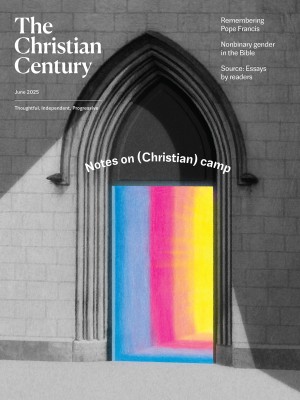June 8, Pentecost C John 14:8-17, (25-27)
John’s Gospel is permeated with an encouragement, indeed an insistence, on intimacy.
As a cradle christian in this majority-Christian society, I’ve never had cause to relate to the Johannine community as I imagine it. While I know there is debate over what exactly the Johannine community was, I imagine it may have been composed of people once embedded in their villages and households, their synagogues and practices. But as each came to believe in Jesus—one here, a couple there—they were more and more disruptive of the settled way of things and thus less easily accepted. So they found one another, forming intimate relationships within what we today might call “found families.”
And what intimacy it was, beginning with their experience of Jesus as read back into the experience of the first disciples and written into their gospel narrative. Karoline Lewis, in her commentary on the Fourth Gospel, points out how Jesus encourages an intimacy with God akin to a child nursing at the breast of its mother. Indeed, she claims the earthly analogue that should give image to our relationship with God our Father is one of a nursing child—because this level of intimacy isn’t reserved exclusively for Jesus. This is for all who’d become children of God, all who’d come to see and to believe and who now only barely have a home in this unbelieving world.
Read our latest issue or browse back issues.
This permeates the whole of John: an encouragement, indeed an insistence, on intimacy. In John’s telling, even the way the Holy Spirit comes into the world presses upon us an almost unbearable closeness—at least according to this New Englander, for whom personal space involves a three-foot radius. The resurrected Jesus breathes on the disciples, as God did in the beginning, breathing the breath of life into all creatures.
Intimacy is also the purpose for this coming. According to John, Jesus worries that the disciples will be left alone, something he repeats during his farewell discourse. The subtext here is his concern that his leaving will be deeply and painfully felt. So they should take heart: there will come another Advocate, another companion to stay close by their side. Now that all their original relationships have come undone, it is crucial that Jesus’ leaving not be a total cutting off.
I haven’t much cause to feel so intimately in need of my found family, my church congregations. As a cradle Christian and a White mainline Protestant, I’ve long been able to navigate a world that might not share my convictions but in which I can at least blend in. But lately there’s a Christianity afoot that alienates me indeed. The loudest confession of our wider world is anathema to what I’ve been brought up to confess and practice, what I’ve been ordained to administer as sacrament. While evangelical pastors lose their congregations to Fox News, and those who once seemed extreme have to resort to things all the more extreme like militias and conspiracy theories, I find myself wishing for the heresy of the good old days, for televangelists and the prosperity gospel, tacky and cynical but not explicitly violent. The heresy now is Christian nationalism, a corruption of the worst sort and one that has found its opportune time.
At one of the congregations I serve, we enjoy a retreat each year in wintertime. The Church on the Hill owns two buildings, one a traditional New England meeting house on the hill (hence the church’s name) and the other a Victorian-era chapel in which the sanctuary is much smaller and therefore less expensive to heat. The latter is where we do the retreat.
It cozily houses 35 people or so. This makes for a closeness that’s not always comfortable. We have to shift our bodies when someone wants to take the empty seat next to us. We have to move our elbows when the offering bowl comes around. People leave the room if they have to cough during worship, and someone arriving late might choose to go back home rather than cause such movement throughout the room once worship has begun.
I appreciate this annual discipline, this spiritual practice, even though it involves sometimes awkward intimacy. Alongside this, it feels like a safekeeping, a gathering akin to how the Johannine community might have gathered back in the day. Intimate, interpersonal, even one-to-one.
May Pentecost bring a breath of peace unto our gathered bodies. On this Sunday that often is celebrated as thunderous and spectacular, maybe this year the Holy Spirit arriving one-to-one will be blessing and correction, come to this mobbed world where what’s sought is massive appeal, come as an enduring intimacy that proves true.





